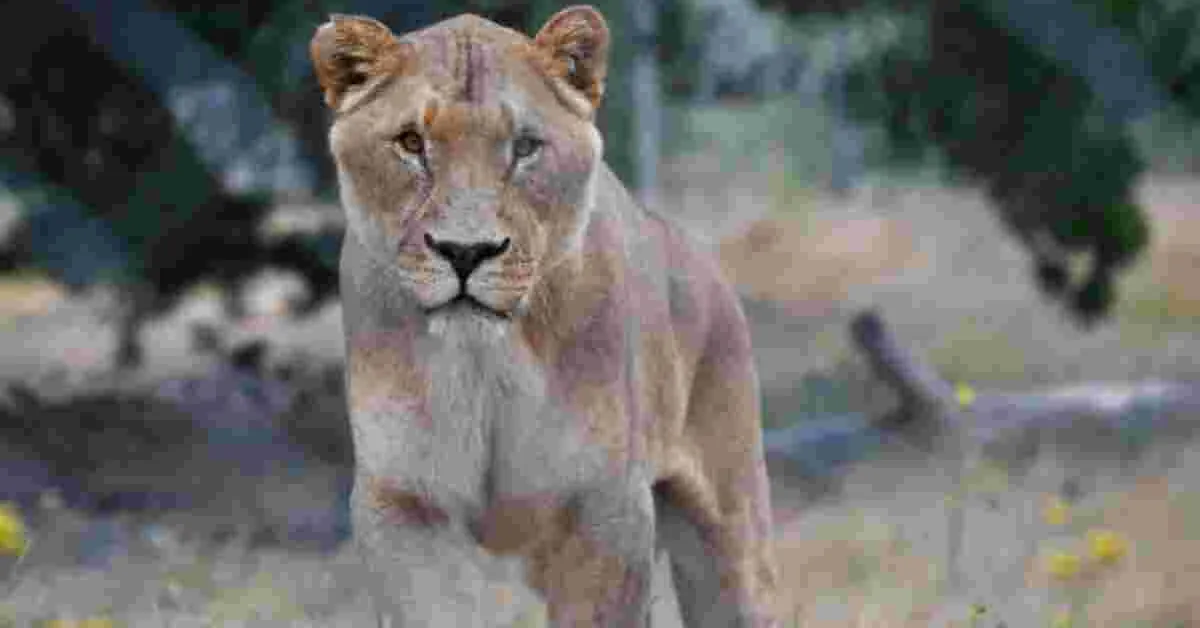Women Rally Behind Makena, the Dog-Eating Lioness in Ongata Rongai

A lioness, dubbed "Makena" by locals in Ongata Rongai has become an unlikely heroine for women in the area after reportedly preying on six domesticated dogs in residential estates.
Contrary to the efforts of the Kenya Wildlife Service (KWS) to track down and neutralize the big cat, many women have taken to social media platforms in support of Makena, crediting her with restoring familial harmony by ensuring their husbands return home promptly in the evenings. Mercy Joshua, in a Facebook post, hails Makena as a "blessing in disguise," stabilizing families in the Ongata Rongai vicinity. Echoing similar sentiments, Purity Gikunda expresses her elation, noting that while the lioness's presence has brought about a positive change, some men might be inclined to spend nights away from home to avoid potential encounters with the predator.
Regina Muranja succinctly proclaims, "Long live Makena. You are our heroine."
The impact of Makena's presence has reverberated beyond Ongata Rongai, with Kajiado resident Sarah Karanja expressing her desire for the lioness to visit her area and instigate similar transformations. Sabina Chege, another resident, affirms that since reports of Makena surfaced, her husband has been bringing home provisions that would have otherwise been consumed at local bars. However, not all residents share the women's enthusiasm for Makena's interventions. Kinayia Ole Moinkett and Leonard Ole Koinari, two local men, have express their defiance, asserting their willingness to confront and eliminate the lioness with their bare hands, refusing to be cowed into submission like "babies."
Meanwhile, the KWS has dispatched its Human-Wildlife Conflict (HWC) team to Ongata Rongai supplemented by the more experienced Problem Animal Management Unit (PAMU). Paul Jinaro, the KWS spokesperson, confirms that the lioness was not in the vicinity of the incident, speculating that she may have had cubs hidden in a separate location. Jinaro attributes the increased wildlife presence in residential areas to the heavy rains experienced in Nairobi over the past few months, which have caused herbivores to migrate through the unfenced southern part of the Nairobi National Park towards human settlements like Rongai, Kitengela, and the broader Kajiado region.
Consequently, carnivores such as lions, leopards, and hyenas have followed in pursuit of their prey, leading to unfortunate incidents like predation on domestic dogs. While acknowledging that over eighty per cent of the Nairobi National Park perimeter is fenced, Jinaro cautions residents in wildlife-prone areas to exercise vigilance, particularly at night.














Comments
What are all these okuyu…
Permalink
What are all these okuyu doing in Maasai land
Comrade Guest, All of us are…
Permalink
In reply to What are all these okuyu… by Guest (not verified)
Comrade Guest,
All of us are Kenyans and Can settle anywhere.
True but they are increasing…
Permalink
In reply to Comrade Guest, All of us are… by Kora Kanini (not verified)
True but they are increasing the cost of land making it unaffordable for the ethnic population who are not lucky to inherit it from their kin
Wewe uko nchi ya RedIndians…
Permalink
Wewe uko nchi ya RedIndians ni kwa Mamayako jinga hii?But those senseless women ought to know carnivorous Makena feeds on all meat which can include their own PEKENYEs.
Get your mind out of the…
Permalink
Get your mind out of the gutter na mimi siko nchi ya wa Hindi wekundu erevuka pumbavu
Add new comment